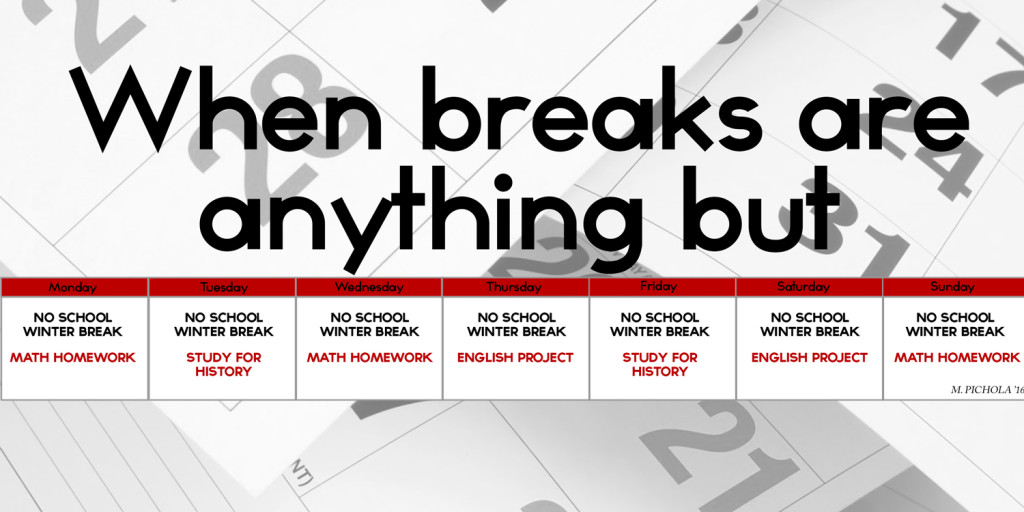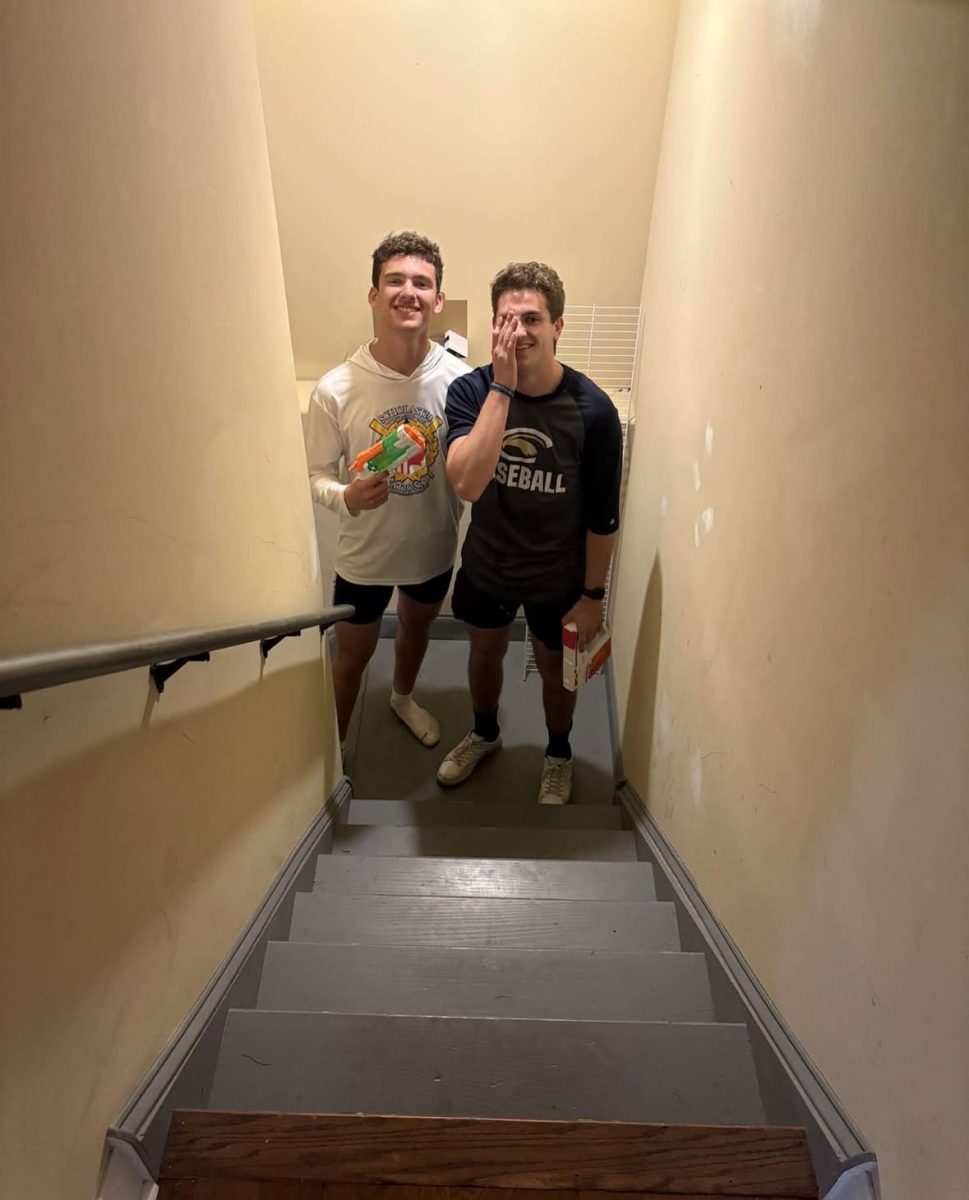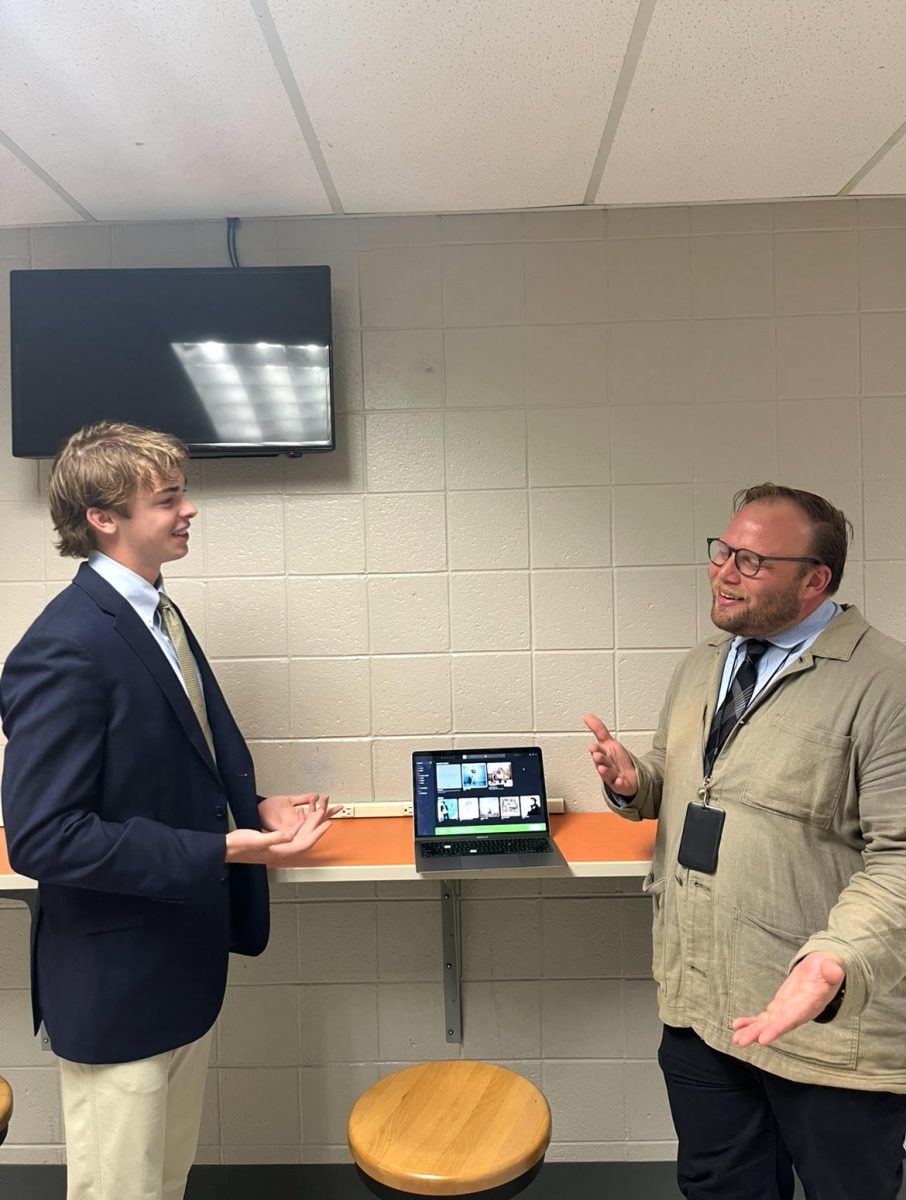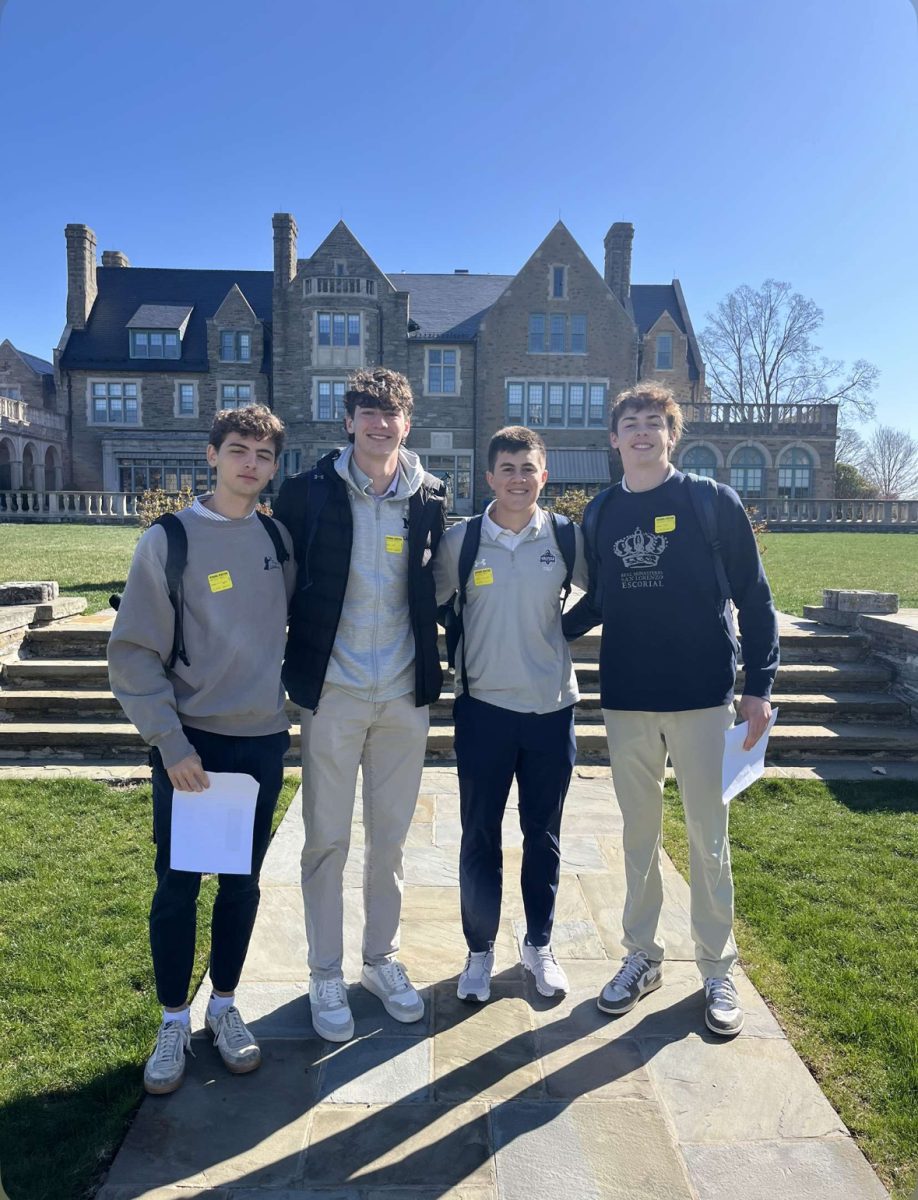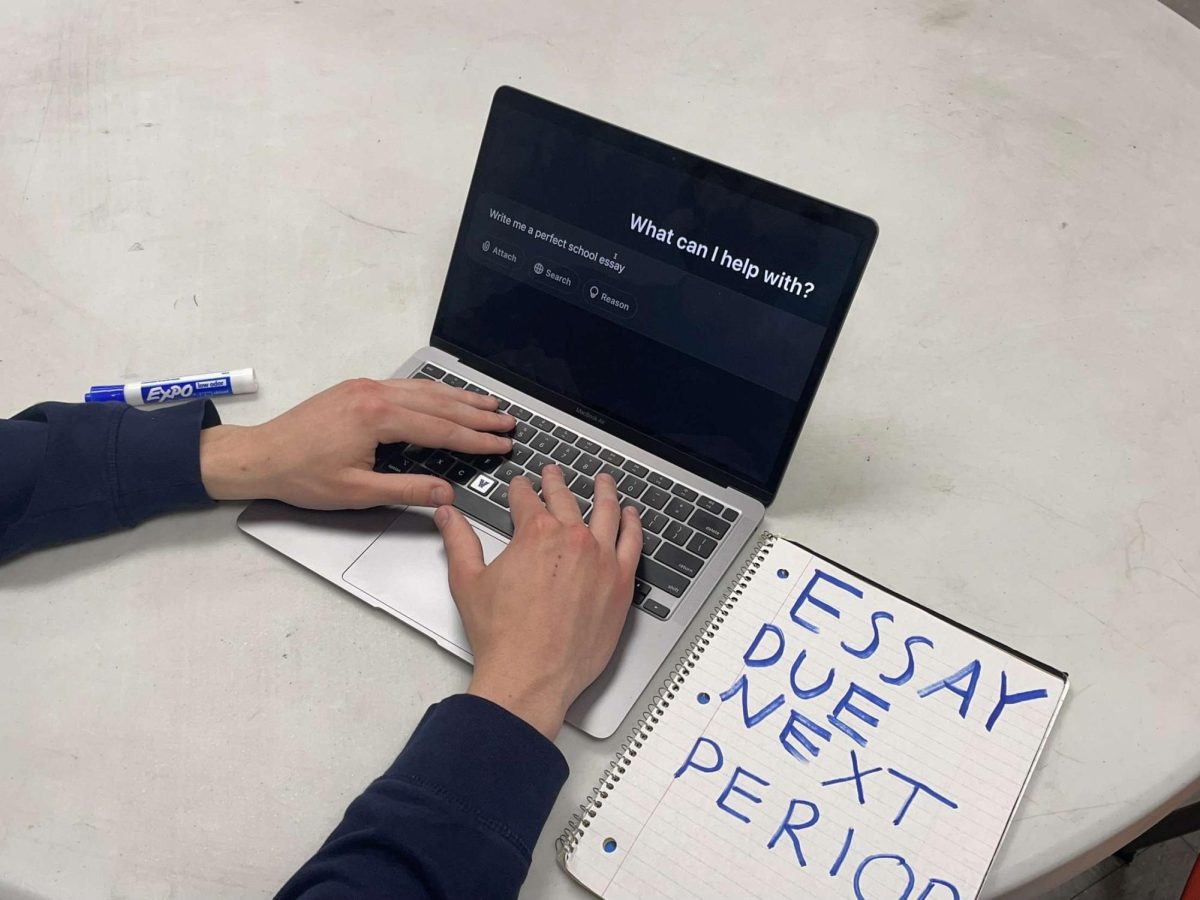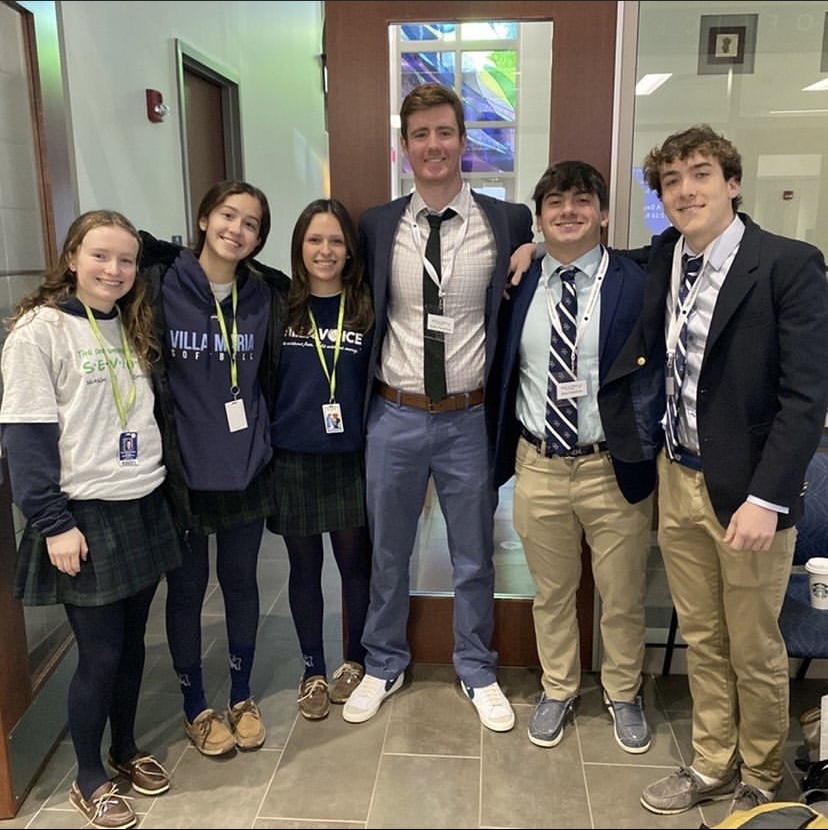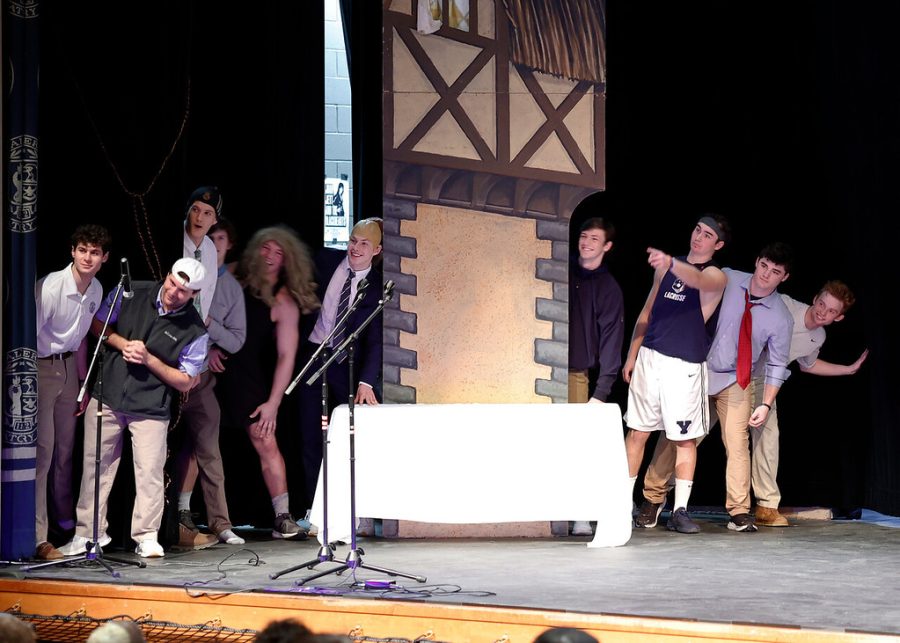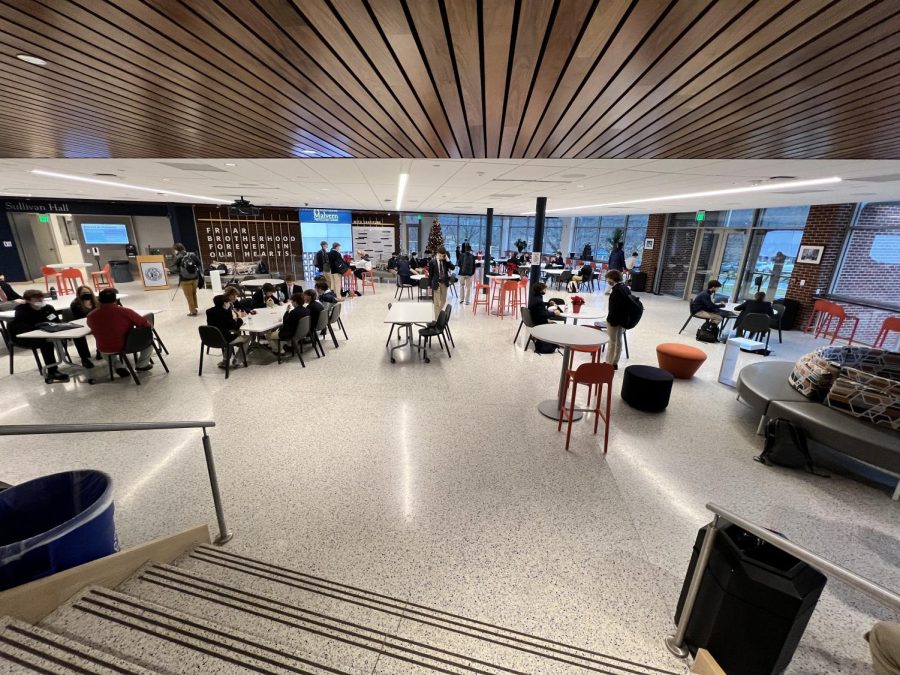
Students, teachers, and experts share perspectives on work over the holidays
It has become so common that we think nothing of it: Many students spend time during their breaks focusing on homework when they could be focusing on family and relaxation.
Although many students receive work to do over break, our community has mixed emotions on this assigned work.
“Most of the time during weekdays [on break], I do not really have anything to do,” freshman Logan Caddy said. “So I can just get the work done and it does not really bother me.”
Others are opposed to the thought of school work to do over breaks.
“It’s called break, it’s supposed to be a break – like no work,” junior Cullen Pina said. “I had to spend three hours on two separate days doing work.”
“I mind work over break because break is meant for spending time with your family and relaxing,” senior Kevin Roussey said. “It says it in the name, break— a break from school.”
Independent Schools Management (ISM) President and Senior Scheduling Consultant, Mrs. Roxanne Higgins, views breaks similarly to Pina. ISM completed a scheduling analysis for Malvern in 2013.
“Our opinion is that there should not be homework over break at all,” Higgins said in a phone interview. “Break should be break.”
Higgins interviewed Malvern students about their average workloads during ISM’s visits to campus.
“On a regular homework night, the average is 2.2 hours [of homework], with the range going as high as 3.5 hours,” Higgins said. “That is way too much. On a heavy homework night the upper school student spent an average of 3.3 hours on homework. That is ridiculous,” she said.
A study by Stanford University Senior Lecturer Denise Pope published in 2014 suggests that more than 2 hours of homework can diminish its effectiveness and be counter productive.
The study also suggested three impacts of too much work or homework in general.
The first of those is stress. Pope talked with 4,317 students during her study and found that 56% of those students said that school work was a large part of their stress load.
The second is the diminished health of the students. Students admitted to being sleep deprived and having headaches from their work.
“Most [students] are not getting the amount of sleep that they need because they do have too much homework,” Higgins said.
The final product/result is less time for family, friends and other activities. Pope and her fellow researchers found that the students were “not meeting their developmental needs or cultivating other critical life skills.”
Higgins believes that breaks should be a time of rejuvenation for students.
However, there can be times when work is necessary.
Advanced Placement (AP) classes need to “maintain a pace,” Math Teacher Mr. Kevin Moore said. “For the AP exam we have a set day, and we have to cover a certain curriculum.”
Even those who believe in no work during breaks tend to understand the rationale when it comes to AP courses.
“In an AP course you are trying to cover the content by the time the AP exam comes around, then there might be some homework,” Higgins said. “But we [at ISM] believe strongly that break should be break.”
Head of Upper School Mr. Ron Algeo said that teachers should be intentional in assigning work over break.
“We want to be intentional and clear about why [teachers] are giving homework and how it is going to be beneficial for [students],” Algeo said.
Students also seem to understand their teachers’ rationale when it comes to class work over breaks, whether it be an AP course or not.
“I guess they just want to make sure you don’t just check out and lose touch with all the work,” Pina said. “But I mean it is only two weeks. You can let us have a nice little relaxing time.”
“Most of the time if you have a big break most of the kids might forget the stuff that you have learned,” Caddy said. “So you can keep up with what you are doing in class.”
“Material can be easily forgotten over break but if they give you work you can touch up on topics,” junior Mac Updike said. “Then when break is over you’re ready to pick up from where you left off when you get back.”
Studies have found that the “memory loss” is not actually as bad as it is most likely believed to be.
“There is short term memory loss, but the re-learning curve is exact mirror image of the forgetting curve,” Higgins said. “So there is no real need to keep that going in the break time.”
However, there will always be the possibility of work over breaks, and almost certainly group work.
“I find it to be 100% busy work just to keep you on your toes,” Roussey said. “I see the reasoning behind it, but I strongly disagree with it.”
In many situations, group work or collaborative projects can be difficult to complete as a result of the logistics.
“Yeah I didn’t do anything over break. We were all on break and didn’t feel like doing anything,” senior Chris D’Ascenzo said. “People are out and it is hard to get everyone in one place at the same time.”
“I find group work to be very difficult over break,” Updike said. “One reason is that one or more people might go on vacation over break and you’re stuck doing it with whomever is available.”
There is no solid answer to this dilemma, and will continue to be a difficult topic until some sort of middle ground is found.
“There should be optional work over break that will also be assigned when you get back,” Roussey said. “So you can get ahead, that is the best solution I think.”
Algeo thinks that there is always room for improvement.
“Maybe there are some tools that we allow students to be able to do voluntarily,” he said. “So maybe no mandatory assignments, but you have some opportunities to do some if you’d like to stay fresh.”


